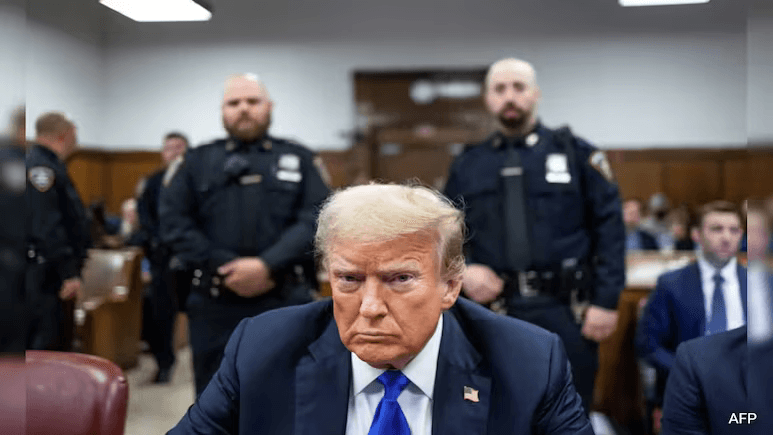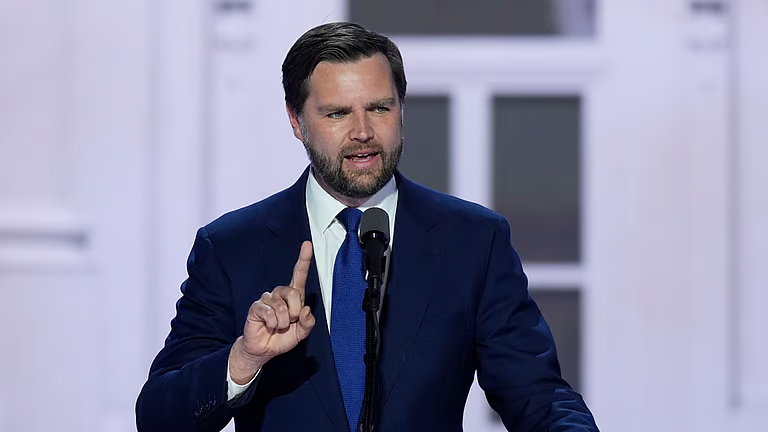In a historic moment for the United States, Donald Trump has become the first U.S. president, past or present, to be convicted as a felon. The charges stem from a case involving hush money payments during his 2016 presidential campaign, and while the conviction marks a watershed moment, the former president managed to avoid jail time, fines, or probation.
This unprecedented case raises pressing questions about justice, politics, and the future of Trump’s political career. Here, we explore five critical questions surrounding this landmark event and its broader implications.
1. What Were the Charges Against Donald Trump?
The charges are tied to allegations of hush money payments made to adult film actress Stormy Daniels to prevent the disclosure of an alleged affair. These payments were funneled through Trump’s business accounts and later falsified as legal expenses, violating New York state laws.
Prosecutors charged Trump with 34 felony counts of falsifying business records. These charges carried significant legal weight, as they were linked to efforts to influence the outcome of the 2016 election by suppressing damaging information.
Despite his vehement denial of wrongdoing, the jury found Trump guilty on all counts, making this the first time a U.S. president has faced a felony conviction.
2. Why Did Trump Avoid Jail or Penalties?
Although convicted of felonies, Trump’s sentence surprised many. The judge issued an unconditional discharge, meaning he will face no jail time, monetary fines, or probation. Legal experts suggest that this leniency stems from several factors:
- The non-violent nature of the crimes.
- The potential political ramifications of incarcerating a former president.
- Trump’s lack of prior criminal convictions.
Critics, however, have argued that the ruling exposes a double standard in the legal system, with the powerful facing more lenient consequences than the average citizen. The decision has fueled public debate over the fairness of the justice system and the message it sends about accountability for high-profile figures.
3. What Does This Mean for Trump’s Political Future?
Under U.S. law, a felony conviction does not disqualify an individual from running for or holding the presidency. This means Trump remains eligible to campaign for the 2024 election, a fact that he and his supporters are keen to emphasize.
However, the conviction poses challenges. It adds a layer of controversy to Trump’s candidacy and could deter moderate voters who are uneasy about supporting a convicted felon. On the other hand, Trump’s base may rally behind him, interpreting the conviction as evidence of a politically motivated attack against him.
Trump’s legal team has announced plans to appeal the conviction, which could extend the legal battle into the 2024 election cycle, keeping the issue in the public eye.
4. How Are Americans Reacting to This Historic Conviction?
Public reactions to Trump’s conviction reflect the country’s deep political divide. For his critics, the conviction is a long-overdue moment of accountability for a leader they view as flouting norms and laws. They argue that it sets an important precedent that no one, not even a former president, is above the law.
For Trump’s supporters, however, the case reinforces their belief that he is a victim of political persecution. Many see the trial as part of a broader effort to weaken his influence and prevent his return to the presidency.
The case has also sparked international interest, with observers questioning how the U.S. justice system handles high-profile political figures and what the implications are for the country’s democratic institutions.
5. What Are the Broader Implications of This Conviction?
Trump’s felony conviction raises profound questions about the intersection of law, politics, and democracy in the United States. Some of the key concerns include:
- Accountability: Does this conviction demonstrate that the justice system is capable of holding powerful figures accountable, or does the leniency of the sentence undermine its credibility?
- Precedent: What impact will this case have on how future political leaders are treated under the law?
- Polarization: Will the conviction further deepen political divisions, or will it encourage Americans to seek common ground on issues of justice and accountability?
The case has also reignited discussions about reforming campaign finance laws and tightening regulations around political disclosures to prevent similar incidents in the future.
Conclusion
Donald Trump’s conviction as a felon marks an extraordinary chapter in American history, one that will be studied and debated for years to come. While he has avoided jail time and penalties, the political, legal, and ethical ramifications of this case will continue to shape his legacy and influence the nation’s political landscape.
As Trump’s legal battles unfold and the 2024 election looms, the United States faces a moment of reckoning. The country must grapple with the complex questions this case raises about justice, accountability, and the enduring strength of its democratic institutions. Whether this conviction ultimately weakens or strengthens Trump’s influence remains to be seen, but its impact on American society is undeniable.
Also Read-
1. California in Crisis: 5 Key Questions About the Role of Satellite Technology in Wildfire Response
2. “Greenland: 3 Key Questions About Whether It Could Ever Be Sold to the United States”




















One thought on “Donald Trump Convicted: 5 Key Questions About the First U.S. President Sentenced as a Felon”